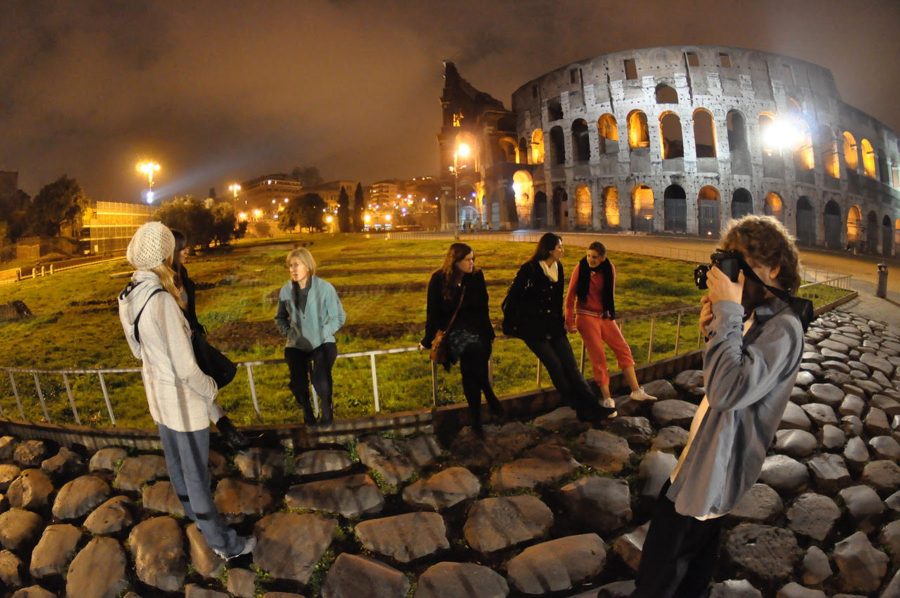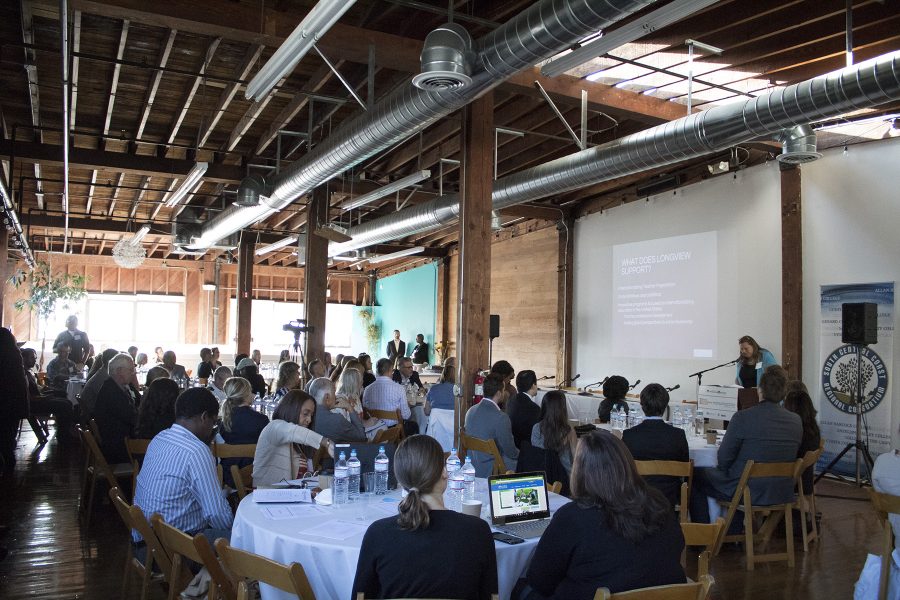Widespread Islamophobia is making American and European governments ignore the greatest human rights debacle of the 21st century: the Syrian Refugee Crisis.
Half of Syria’s pre-war population has either been killed or displaced. Over 4.5 million refugees have fled war zones in Syria, Iraq and Afghanistan for safety in Turkey, Lebanon, Jordan, Egypt and some secure areas of Iraq.
Highly developed nations with far greater capacity to shelter refugees, on the other hand, have turned their backs and closed their borders.
“Think about some of the candidates today: Trump, Carson, Rick Santorum. Mr. Trump basically says we should stop all Muslims coming in temporarily,” said John L. Esposito, professor of international affairs and Islamic studies at Georgetown University, in a lecture at UCSB on Jan. 21.
“Mr. Trump says that after 9/11 Palestinians in New Jersey were dancing in the street, something that has been proven time and again to never have occurred,” said Esposito.
Media Tenor, an international media research institute, looked at 2.6 million pieces of news from the United States and Europe since 9/11. They found that coverage of Islam has continuously worsened; Muslims are almost always portrayed as violent threats. These portrayals spiked when ISIS got into mainstream news, despite only 1 in 10 victims of Islamic extremism being non-Muslim.
“When Christian and Jewish radical fundamentalists commit acts of violence, we immediately say, ‘They’re extremists,’ or ‘ultra-nationalists,’” Esposito said.
Muslims are rarely awarded the same credence.
In the European Union, with the exception Germany, Sweden and a few other states, countries are engaged in a contest of who can make their home the least appealing to potential, mostly Muslim refugees.
Denmark, for example—long seen as a beacon of tolerance and understanding—recently passed new laws that force tired and helpless refugees to forfeit their most valuable possessions, according to an article on CNN.
The situation isn’t any better in America.
Congress and presidential candidates are fighting over the White House’s promise to give refuge to a measly 10,000 Syrians. A marker Sweden hit in just a week last October. because of a jihadist pipeline from Syria to Ellis Island.
The White House hasn’t applied enough pressure on regional allies like Saudi Arabia, Kuwait, Qatar and other Gulf States to make them share the burden either.
The Syrian Refugee Crisis offered America and Europe a chance to silence growing anti-immigrant populism, repaint the image of the west that Islamic militants have driven and reassert themselves as leaders in a chaotic world.
Unfortunately, it’s starting to look like a missed opportunity because American and European governments are convinced that a little compassion will turn their countries into “Mad Max.”
Opponents of resettlement policies fear that large numbers of refugees will have trouble mixing into highly developed labor forces, putting economic strain on their countries.
True, no country can take in all the refugees alone, but several million refugees can easily integrate into the 800 million people shared between America and the European Union with an organized, coordinated effort. Letting Germany and Sweden continue to deal with the crisis alone will damage both countries’ economies as well as the European Union.
The fact that many of the world’s major powers can’t get behind a resettlement policy to confront the biggest humanitarian crisis since World War II is surprising. The highly developed west and company are leaving millions of weary, war torn refugees to an unstable and unsafe future because of a made up fear of Muslims.
Hopefully the recent ceasefire helps slow the flood of refugees.













